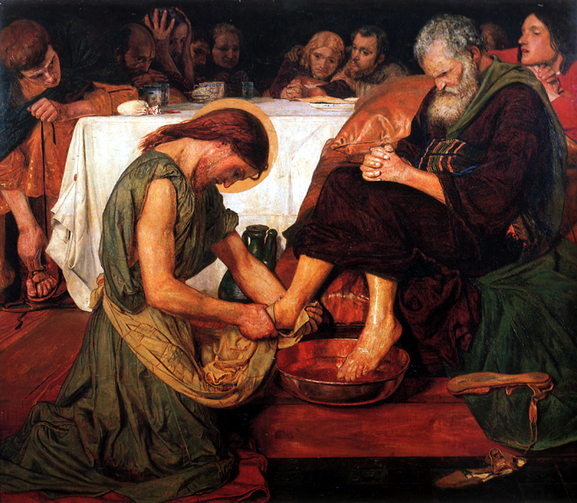Do this in remembrance of me
Each of our liturgical readings tonight ends with a command, an exhortation, or simply a statement of fact, all of which are intended to take an historical event and make it present for future generations. About the Passover meal: this is a memorial feast for you that all generations to come shall celebrate as a perpetual institution. About the Last Supper: do this in remembrance of me. For as often as you eat this bread and drink this cup, you proclaim the death of the Lord until he comes. About the washing of the feet: If I, therefore, Master and teacher, have washed your feet, you ought to wash one another’s feet.
This, then, is a night of institution, which provides in the Eucharist and the priesthood the means whereby God’s saving actions are not only called to mind and remembered, but also made real and powerfully present. In the washing of the feet, we are given the most eloquent expression of the humility that marks the way of the disciple and the master.
Jesus says that he longed to celebrate the Passover meal with his disciples. What was in that longing? It’s easy enough to imagine that other emotions, such as fear and dread of what lay ahead, could have overtaken him. But no, “he loved his own in the world, and he loved them to the end.” That love showed itself in a longing to be fully known, and on this night before his passion, to reveal himself in the most direct and articulate way – first, to these twelve whom he had drawn to himself and then to all who would bear the name Christian. “This is my body given up for you, this cup is the new covenant in my blood, to be poured out for you.” If you want to know who I am, Jesus is telling us, never stop meditating on these words.
Besides giving new, unprecedented depth to the Passover meal and the Passover lamb, these words of institution effect the remarkable transformation whereby an act of hatred and violence becomes, at this darkest moment in human history, the most perfect expression of love. In our own dark hour, when fear can easily grip our lives, “do this in remembrance of me” has a special resonance. Its point of reference includes, to be sure, the ritual sacrifice, celebrated remotely these days, but also the care that we show to one another in these straitened circumstances. It shines forth in the lives of those who are vulnerable and those who make themselves vulnerable in the direct care of the sick and dying. “This is my body, given up for you, this is my blood, poured out for you. Do this in remembrance of me.”
